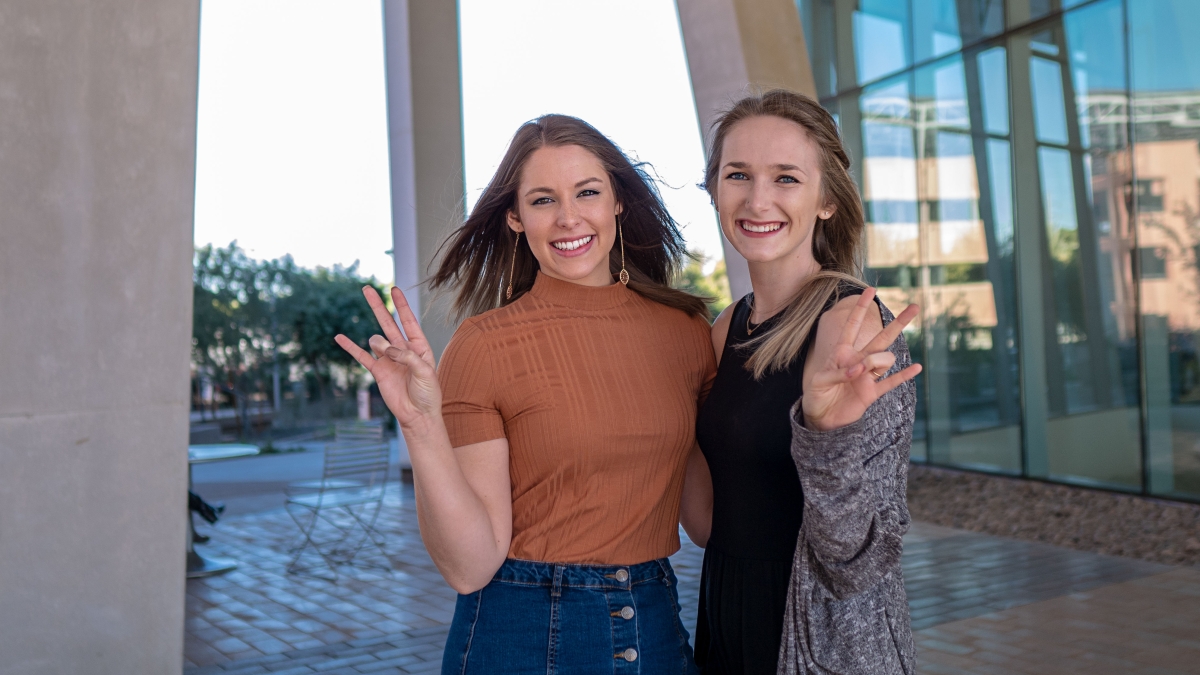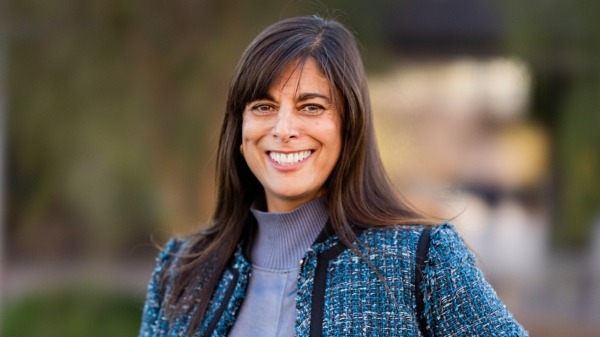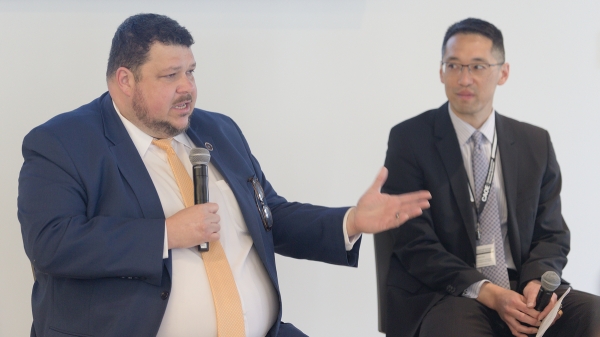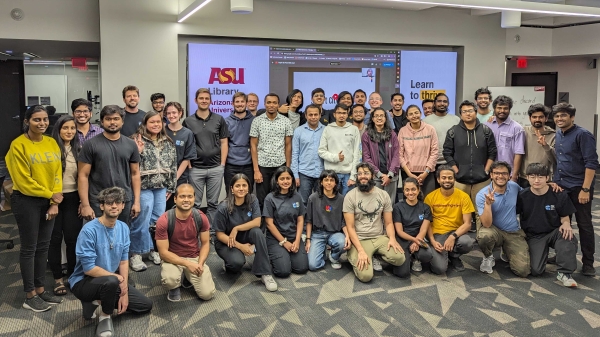Fighting against teen suicide
ASU psychology seniors launch initiative to support students, parents and educators

Madison Sutton (left) and Sonia Sabrowsky decided they had to do something to try to prevent teen suicide. Photo by Robert Ewing/ASU
Just two years ago, 31 teenagers died by suicide in the East Valley. Teen suicide is not just localized to large cities like Phoenix; it is a problem throughout Arizona and nationally. In 2017 alone, 1.3 million people attempted suicide and almost 50,000 died by suicide. For people of all ages, suicide is the 10th leading cause of death, but for teenagers, it is the second.
Arizona State University students Sonia Sabrowsky and Madison Sutton, both seniors in the Department of Psychology and Barrett, The Honors College decided they had to do something to try to prevent teen suicide.
Their motivation is personal. When Sabrowsky and Sutton were in high school, a friend died by suicide.
Both women are members of ASU’s Courage Lab and the ASU Tillman Scholars Program. The Tillman Scholars Program is a community of high achieving students, alumni and mentors who espouse the values and actions of Pat Tillman. They were encouraged to come up with a social venture designed to make a difference.
Together, they founded the Home Base Initiative, a nonprofit that provides mental health resources for students, parents and educators. Sabrowsky and Sutton’s initiative uses evidence-based interventions to promote better coping strategies for people suffering from suicidal thoughts. The Home Base Initiative is also in the process of creating a community-based peer support network for high school students.
“There are a lot of people who have been affected by teen suicide,” Sutton said. “Sonia and I wanted to make sure there were resources available for those at risk.”
Armando Pina, associate professor of psychology and director of ASU’s Courage Lab, and psychology graduate student Ryan Stoll helped mentor Sutton and Sabrowsky. Together, they identified evidence-based interventions. The next step for the Home Base Initiative is to design a program for Arizona high schools.
“The rate of suicide that we would want, is zero,” Pina said. “Young students should really not be thinking about ending their lives.”
Sutton and Sabrowsy set up the Home Base Initiative as a free resource guide with content specifically geared toward students, parents and educators. The initiative’s website has sections for each group that discuss how to support someone at risk for suicide and how to use evidence-based coping mechanisms for improved self-care.
“Though programs often address clinical risk factors such as depression and anxiety, the social risk factors of suicide, such as feelings of isolation, burdensomeness, and a lack of a tightly networked school community, are often overlooked, so we looked at how we could best support students who might have not been diagnosed as at risk for suicide,” Sutton said.
If you or someone you know is in crisis, call the toll-free National Suicide Prevention Lifeline, 1-800-273-TALK (8255), available 24 hours a day, seven days a week to anyone. All calls are confidential. Additionally, resources are available for ASU students with confidential professional counseling on campus.
More Science and technology

ASU planetary scientist to be inducted into the National Academy of Sciences
The National Academy of Sciences is inducting School of Earth and Space Exploration Director Meenakshi Wadhwa into the 2023 class…

Unlocking the potential of AI for homeland security
“Can we do what we're doing now cheaper, more efficiently, more effectively?” Adam Cox, director in the Office of Strategy and…

SpaceHACK highlights student solutions to environmental challenges, digital divide
By Adrianna Nine About 250 students from around the world convened online and at Arizona State University on March 22 for the…